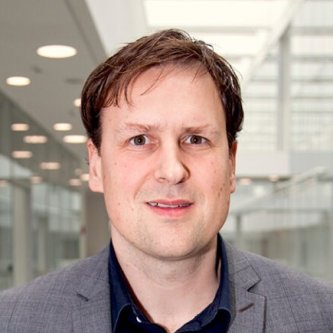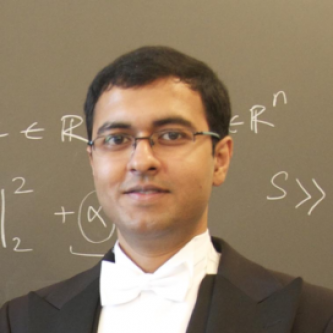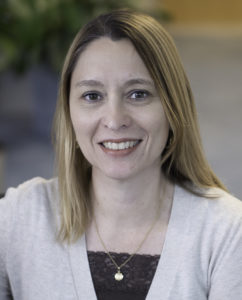The working sessions at ICSA 2022 are an action to bring back the working nature of the conference in the WICSA days. To adapt to the virtual mode of the conference, these sessions will be run as challenge workshops split across two days to allow for “in-between thinking”. Day 1 of the session will focus on challenge elicitation, while Day 2 will focus on brainstorming solutions to address those challenges.
We have three working sessions scheduled across multiple days and time zones so that everyone can participate.
Architecting Internet of Behaviors
 |
 |
 |
Leads: Henry Muccini (University of L’Aquila), Mahyar T. Moghaddam (University of Southern Denmark), Eoin Woods (Endava), Julie Dogdale (Université Grenoble Alpes), Mikkel Baun Kjaergaard (University of Southern Denmark), and Sourav Bhattacharya (Samsung AI Center) |
 |
 |
 |
Description
Your decisions are driven by your behaviors!
Intelligent connected systems are continuously capturing your behavior. They could further adapt themselves to impact your actions, moods, and habits in implicit and explicit ways. Are you interested in architecting those Internet of Behaviors (IoB) systems?
In IoB, humans are considered as citizens, occupants, or building visitors who may not consciously interact with the digital world, being unaware that they are part of a software system. Still, they could benefit from the way the system works.
IoB links the digital world to human behavior. On one side, the digital world captures human behaviors (through data collected by using e.g. sensors, mobile devices, social media) in order to provide personalized systems for shopping, movie selection, trip behaviors, and more. The digital world, therefore, guides human behavior. On the other side, human behaviors (such as, e.g. individuals movement, social relationships, habits, goals, collective decisions) shall be kept into account for adapting the digital world so to maximize the individuals’ quality of experience. IoB considers humans as a source of change and, consequently, of computation. Human behavior, therefore, guides the digital world.
Within this working session, we aim to form an IoB community with the participation of various software engineering domains. We aim at having talks, groups discussions, and working sessions together with our academic and industry colleagues.
Times
- Day 1: Monday, March 14 – 10:00 am to 11:30 am UTC
- Day 2: Tuesday, March 15 – 8:00 am to 9:30 am UTC
Software Architecture for Machine Learning Systems
 |
 |
Leads: Ipek Ozkaya and Grace Lewis (Carnegie Mellon Software Engineering Institute) |
Description
Developing software systems that contain machine learning (ML) components requires an end-to-end perspective that considers the unique life cycle of these components — from data acquisition, to model training, to model deployment and evolution. While there is an understanding that ML components in the end are software components, there are some characteristics of ML components that bring challenges to software architecture and design activities, such as data-dependent behavior, drift over time, and timely capture of ground truth to inform retraining.
Over the last year, while the software architecture research community has improved its understanding of the challenges in architecting systems with ML components, there is still confusion. For example:
1- What represents an ML component is not consistently understood.
2- What characteristics of ML systems can be managed with architectural approaches versus traditional data management strategies is unclear, e.g., is fairness an attribute of the model training process, or can it also be enforced at runtime?
3- What are ML-relevant quality attributes from an architecture perspective, e.g., is fairness really a quality attribute?
In this working session, we will capture misconceptions associated with software architecture for ML systems and jointly brainstorm on how to avoid and address these. Session results will be published to serve as input for industry and academia to work together on research to solve these open issues.
Times:
- Day 1: Sunday, March 13 – 4:00 pm to 5:30 pm UTC
- Day 2: Monday, March 14 – 8:00 pm to 9:30 pm UTC
Software Architecture Problems in the next 5 to 10 Years
 |
 |
Leads: Bara Buhnova (Masaryk University) and Clemens Szyperski (Microsoft) |
Description: With the advancement of digitization, software architectures in critical domains, such as healthcare, transportation, or smart buildings, have opened themselves towards intelligent technological opportunities, including automation of previously manual decision making. Yet, the architecture of these systems is not always ready to mitigate not-yet-known threats and challenges that will face the system in the future. From another direction, pressure on the time-to-market and ease of development pushes many developers to reconsider the role of software architecture in their projects. In this working session, we aim to collectively uncover the software architecture problems and challenges that need our attention in the next 5 to 10 years. We would like to highly encourage viewpoints coming from different scientific as well as industrial communities and hope to arrive to valuable insights for all involved.
Times:
- Day 1: Sunday, March 13 – 10:00 pm to 11:30 pm UTC
